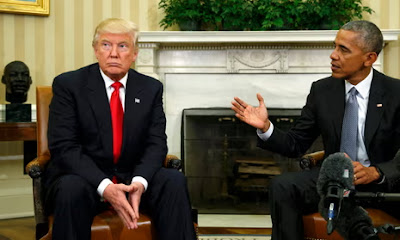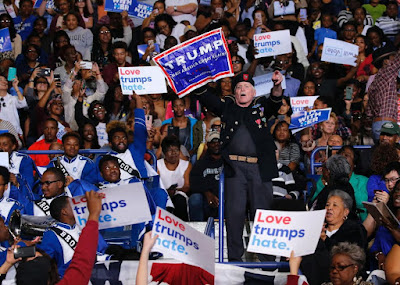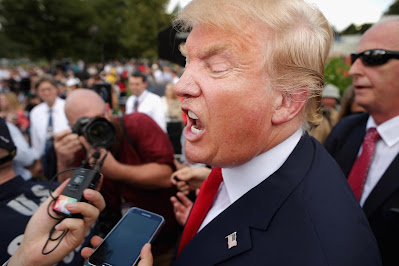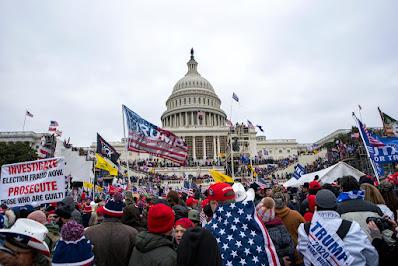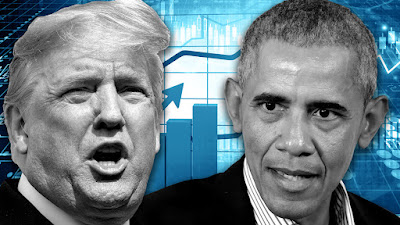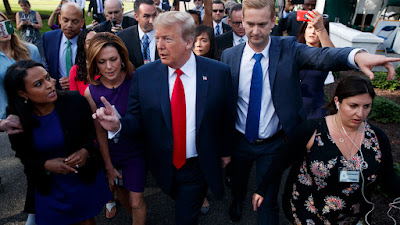The political landscape in the United States witnessed a remarkable contrast between the presidencies of Barack Obama and Donald Trump. The transition of power from Obama, a Democrat who symbolized hope and change, to Trump, a Republican who embraced an unconventional and divisive approach, highlighted stark differences in their policies, rhetoric, and leadership styles. Their relationship, shaped by mutual animosity and occasional civility, played a crucial role in shaping the nation's discourse during this period.
The transition of power between Barack Obama and Donald Trump was marked by both cordiality and tension. Despite their contrasting political ideologies, President Obama upheld the tradition of a peaceful transition of power and extended a warm welcome to President-elect Trump. They met at the White House, discussing national security and other critical issues. However, behind closed doors, reports suggested that Obama warned Trump about the challenges of the presidency and the importance of certain policies such as the Affordable Care Act (ACA).
Throughout his tenure, President Trump did not shy away from criticizing his predecessor's policies, often singling out the Affordable Care Act and the Iran nuclear deal for particular scrutiny. He sought to dismantle many of Obama's key initiatives, including rolling back environmental regulations, withdrawing from international agreements like the Paris Climate Accord, and attempting to repeal the ACA. These actions reflected the stark ideological contrast between the two leaders and revealed Trump's determination to dismantle what he saw as Obama's legacy.
Before his entry into politics, Donald Trump was one of the prominent voices of the "birther" movement, which questioned the authenticity of Barack Obama's birth certificate and, consequently, his eligibility to serve as president. This unfounded conspiracy theory fueled tensions between the two leaders and created animosity between their respective supporters. However, during his presidency, Trump eventually distanced himself from the birther movement and acknowledged Obama's birthright citizenship.
Throughout his presidency, Donald Trump was vocal in his criticism of Barack Obama, often taking to social media to express his disapproval. He blamed Obama for various issues, from domestic economic challenges to foreign policy decisions. This rhetoric escalated tensions between the two camps and further polarized the American public.
Despite the animosity, there were moments of civility and unity between the two leaders. On occasions such as the transfer of power and state events, they demonstrated a semblance of working together for the greater good of the nation. Both presidents understood the significance of continuity and the peaceful transfer of power, transcending their political differences on certain occasions.
The relationship between Donald Trump and Barack Obama exemplified the contrasting styles of leadership that dominated American politics during this period. Their interactions showcased the deep ideological divisions within the country. While President Trump made significant efforts to dismantle Obama's policies and legacy, there were instances of civility and unity, demonstrating the importance of continuity in American governance. The relationship between these two presidents serves as a poignant reminder of the complexities and challenges that come with governing a deeply divided nation.
Related Posts:
1. IS THERE A RELATIONSHIP BETWEEN DONALD TRUMP AND WHITE SUPREMACISTS?
2. TRUMP'S RELATIONSHIP WITH THE BUSH FAMILY: A COMPLEX POLITICAL SAGA
3. BIOGRAPHY OF DONALD TRUMP - CAN DONALD TRUMP WIN IN 2024?
4. IS DONALD TRUMP A NAZI? HATE AGAINST MUSLIMS & MEXICANS REACHES NEW LEVELS
5. ARE TRUMP TAX CUTS GOOD FOR UNITED STATES OF AMERICA? WILL THE TAX INTAKE INCREASE?
Other Related Posts:
5. PEOPLE ARE SAYING: TRUMP LIKES PEE | FULL FRONTAL WITH SAMANTHA BEE
